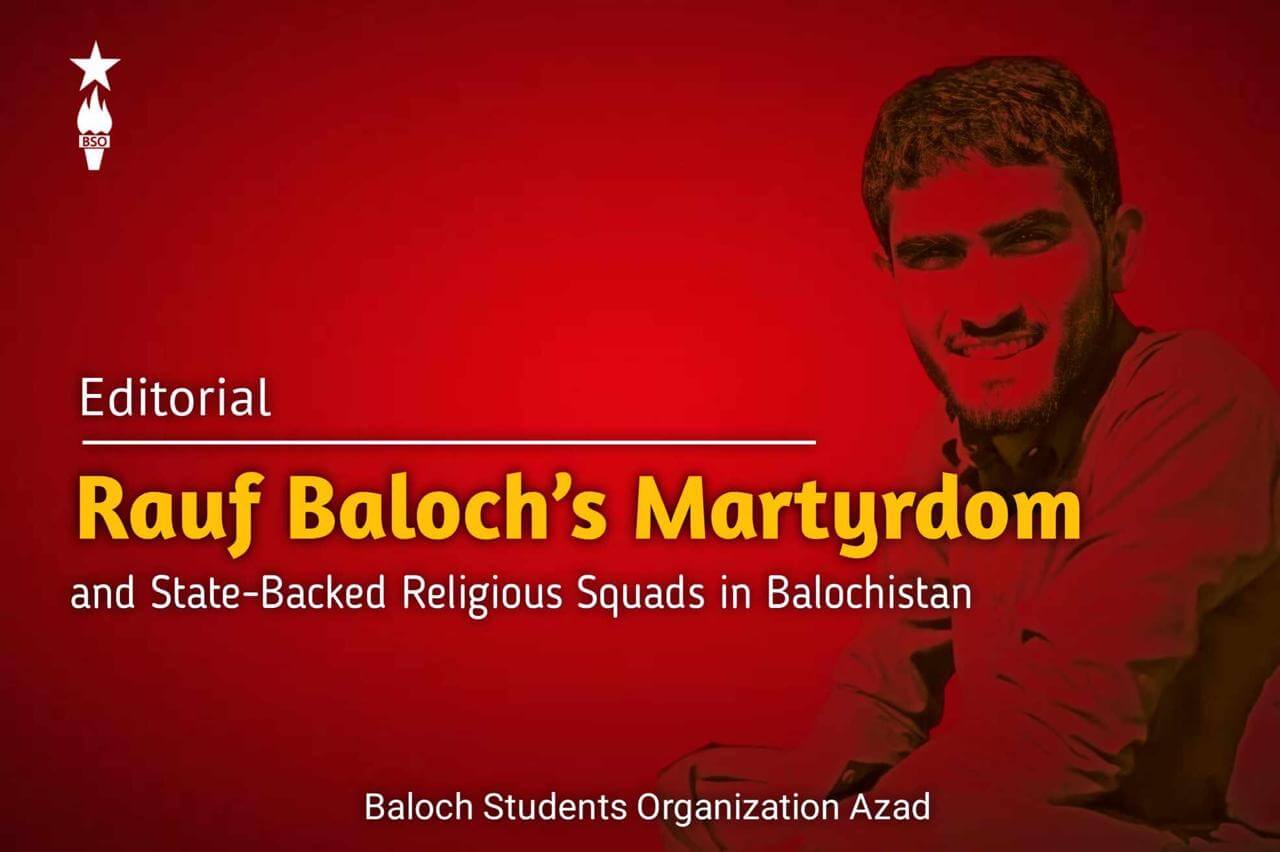Editorial:Rauf Baloch’s Martyrdom and State-Backed Religious Squads in Balochistan
On August 5th, Rauf Baloch, a schoolteacher from Bolan Centre Kech and a graduate of Atta Shad Degree College Kech, was tragically gunned down in Turbat city of Kech district. The alleged reason behind this heart-wrenching incident was blasphemy, and the attackers were members of a state-backed militia. The incident quickly gained media attention, triggering public outrage over the senseless killing of an educated youth. Individuals from all walks of life in Balochistan, including religious figures like Khalid Waleed Safi, condemned the killing of Rauf Baloch and demanded immediate action against the culprits.
The orchestrator of this tragic event was identified as Mullah Shah Meer, the son of Sardar Aziz, known for his involvement in several killings and abductions in Pederak and its vicinity. Shah Meer’s family runs a militia group in Kech and other areas, in cooperation with the Pakistani army.
It’s apparent that Rauf was deliberately targeted in a preplanned attack by this state-affiliated group. This incident aimed to quell the recent surge of awareness among the local population in Kech and Turbat city. The political consciousness in these areas has risen due to heightened state repression and inhumane policies to suppress the Baloch movement.
Religious groups, orchestrated by individuals like Mufti Shah Meer, play a pivotal role in the army’s strategy to counter the Baloch movement whenever necessary. The killing of Rauf Baloch is a glaring example of Pakistan army’s broader agenda. State-backed religious elements are frequently utilized to instigate internal conflicts among the masses, diverting attention from pressing issues. Despite such tactics, the people of Balochistan remain aware of these manipulations.
The frustration of the state in Balochistan is evident. After decades of crackdowns and killings, the state’s influence over the general public remains minimal, while the Baloch independence movement grows stronger each day. The state’s funding of individuals like Shafeq Mengal and Mufti Shah Meer is an attempt to counter the liberation movement by highlighting religious issues. However, the Baloch society has historically prioritized tolerance, freedom, and unity over religious differences.
It is crucial for pro-independence parties and intellectuals to educate the nation about these state strategies aimed at disintegrating Baloch society. The state’s extremism policies pose a significant threat that must be effectively countered. Baloch organizations must rise to face the numerous challenges posed by the state’s arsenal of tactics designed to weaken the Baloch liberation movement.
Lastly, the tragic murder of Rauf Baloch serves as a grim reminder of the state’s utilization of extremist elements and tactics to further its agenda in Balochistan. By understanding and exposing these strategies, the Baloch nation can fortify its unity, resilience, and commitment to the genuine issue at hand – the liberation of Balochistan from Pakistani state occupation.

